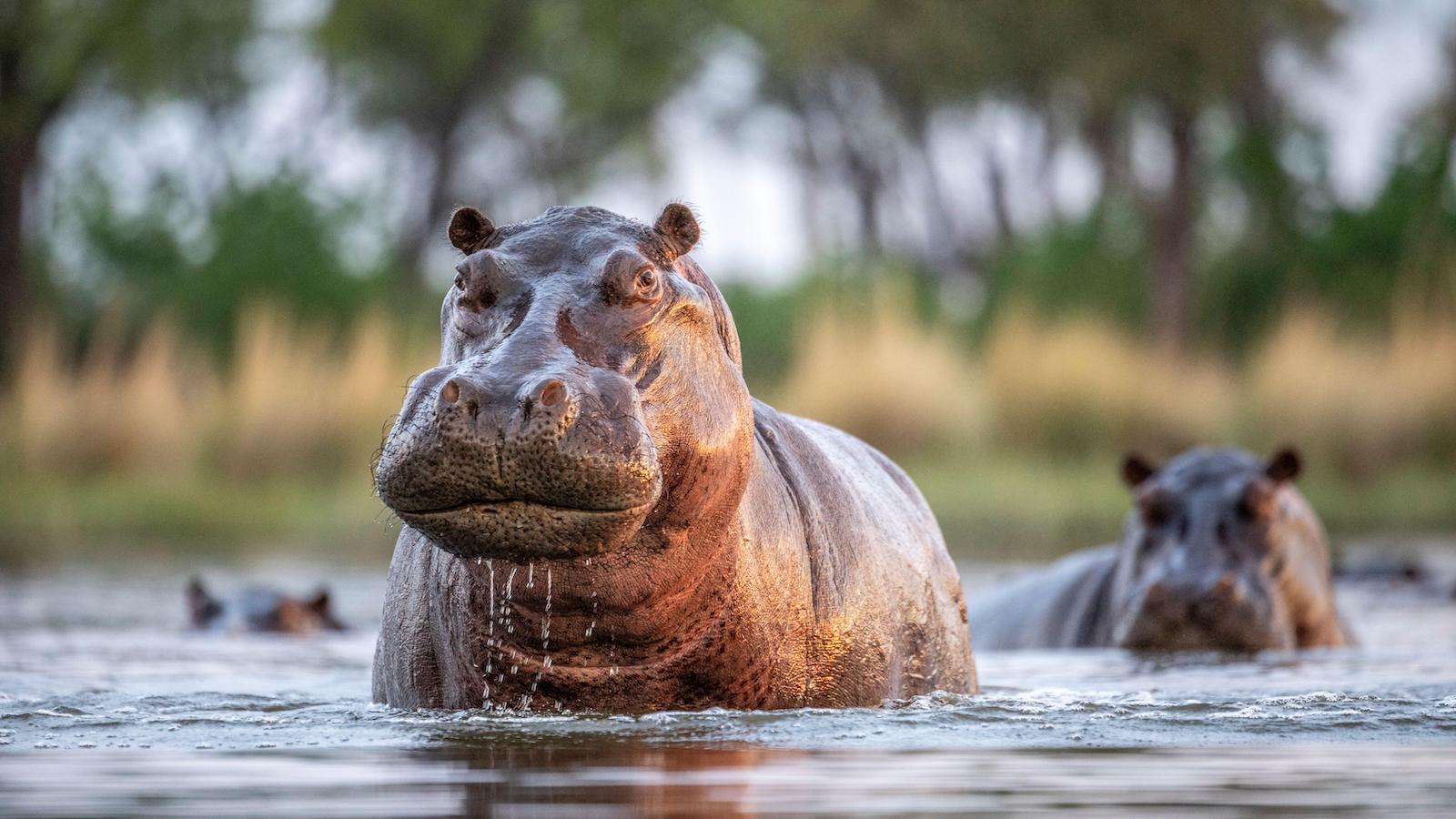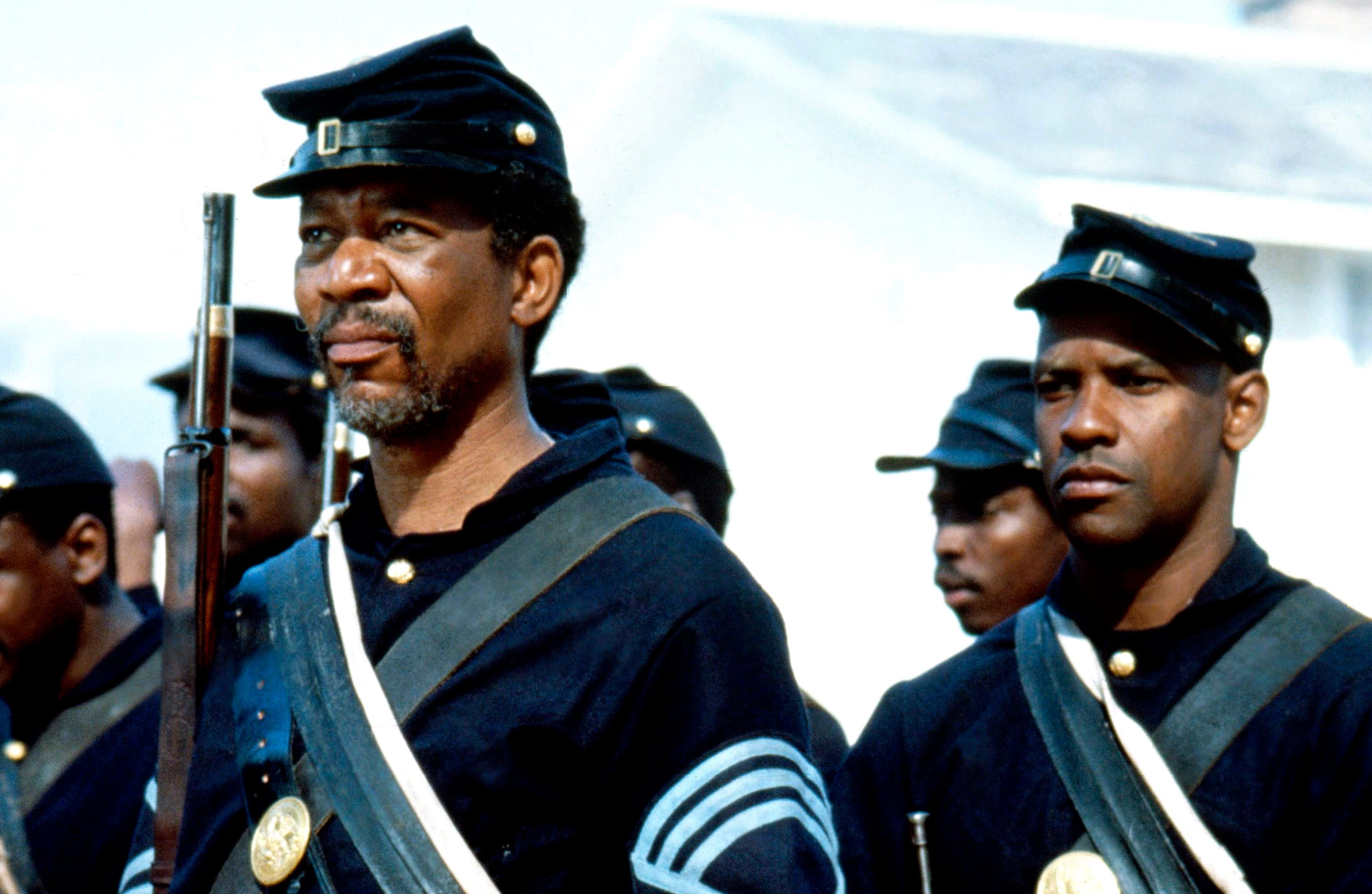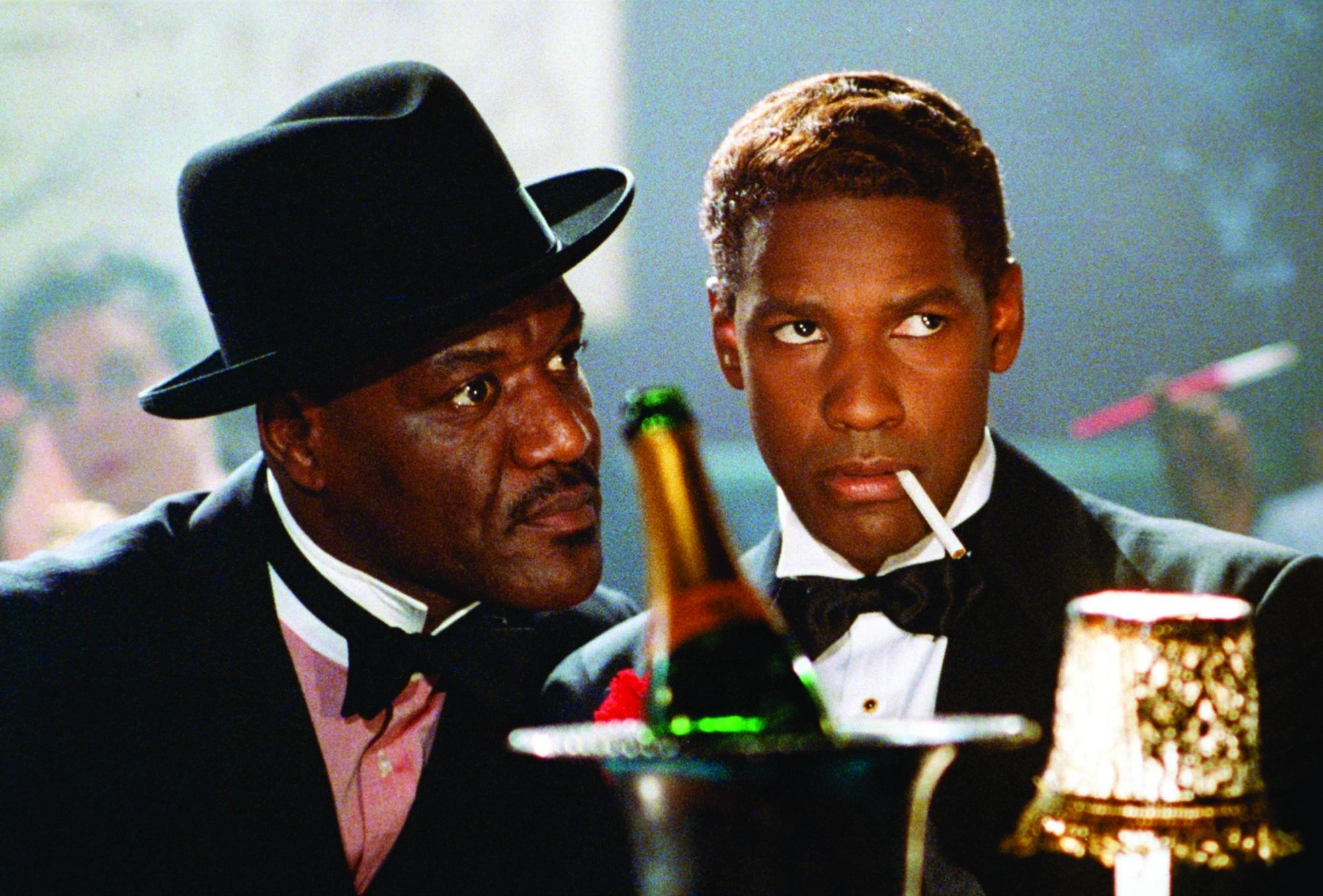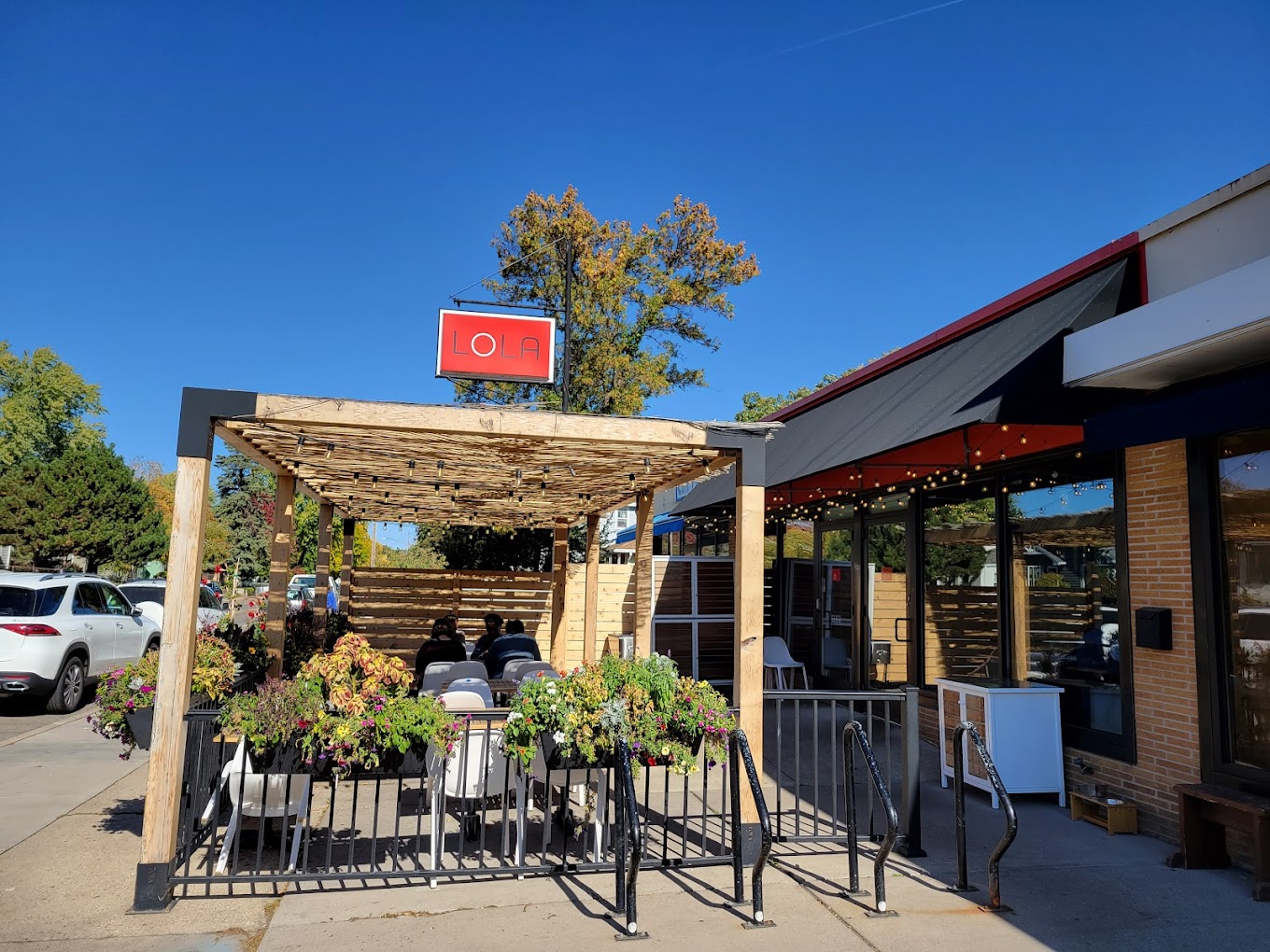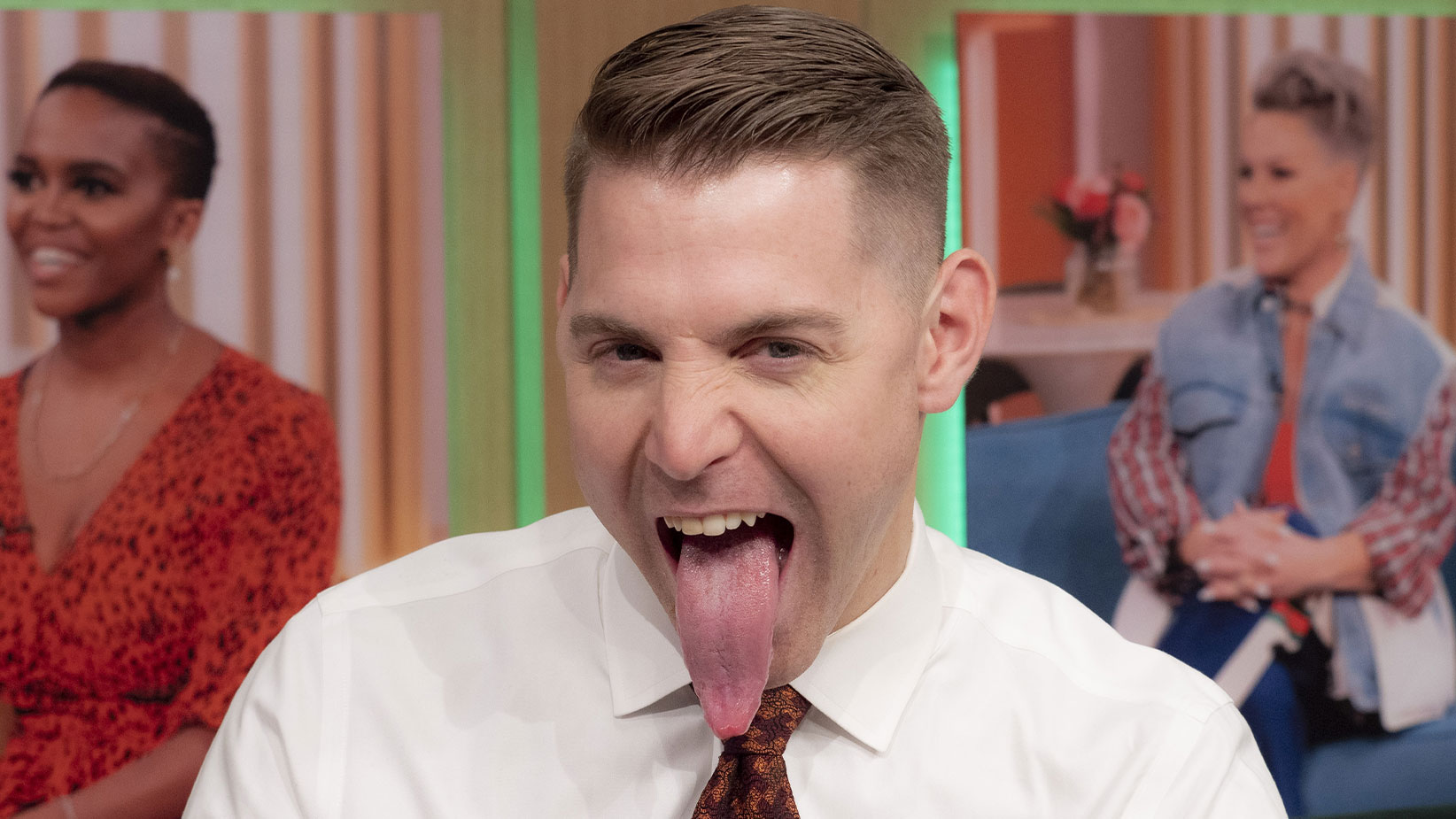
-
"Yes, Virginia, There is a Santa Claus" by Francis P. Church:
- Originally published in 1897 in The New York Sun, this timeless editorial responds to a young girl's question about the existence of Santa Claus, delivering a heartwarming affirmation of the holiday spirit.
- Yes, Virginia, There is a Santa Claus Dear Editor— I am 8 years old. Some of my little friends say there is no Santa Claus. Papa says, “If you see it in The Sun, it’s so.” Please tell me the truth, is there a Santa Claus? Virginia O’Hanlon Virginia, your little friends are wrong. They have been affected by the skepticism of a skeptical age. They do not believe except they see. They think that nothing can be which is not comprehensible by their little minds. All minds, Virginia, whether they be men’s or children’s, are little. In this great universe of ours, man is a mere insect, an ant, in his intellect as compared with the boundless world about him, as measured by the intelligence capable of grasping the whole of truth and knowledge. Yes, Virginia, there is a Santa Claus. He exists as certainly as love and generosity and devotion exist, and you know that they abound and give to your life its highest beauty and joy. Alas! how dreary would be the world if there were no Santa Claus! It would be as dreary as if there were no Virginias. There would be no childlike faith then, no poetry, no romance to make tolerable this existence. We should have no enjoyment, except in sense and sight. The eternal light with which childhood fills the world would be extinguished. Not believe in Santa Claus! You might as well not believe in fairies. You might get your papa to hire men to watch in all the chimneys on Christmas eve to catch Santa Claus, but even if you did not see Santa Claus coming down, what would that prove? Nobody sees Santa Claus, but that is no sign that there is no Santa Claus. The most real things in the world are those that neither children nor men can see. Did you ever see fairies dancing on the lawn? Of course not, but that’s no proof that they are not there. Nobody can conceive or imagine all the wonders there are unseen and unseeable in the world. You tear apart the baby’s rattle and see what makes the noise inside, but there is a veil covering the unseen world which not the strongest man, nor even the united strength of all the strongest men that ever lived could tear apart. Only faith, poetry, love, romance, can push aside that curtain and view and picture the supernal beauty and glory beyond. Is it all real? Ah, Virginia, in all this world there is nothing else real and abiding. No Santa Claus! Thank God! he lives and lives forever. A thousand years from now, Virginia, nay 10 times 10,000 years from now, he will continue to make glad the heart of childhood. Francis B. Church Editor of the New York Sun 1897 About the Exchange Francis P. Church’s editorial, “Yes Virginia, There is a Santa Claus” was an immediate sensation, and went on to became one of the most famous editorials ever written. It first appeared in the The New York Sun in 1897, almost a hundred years ago, and was reprinted annually until 1949 when the paper went out of business. Thirty-six years after her letter was printed, Virginia O’Hanlon recalled the events that prompted her letter: “Quite naturally I believed in Santa Claus, for he had never disappointed me. But when less fortunate little boys and girls said there wasn’t any Santa Claus, I was filled with doubts. I asked my father, and he was a little evasive on the subject. “It was a habit in our family that whenever any doubts came up as to how to pronounce a word or some question of historical fact was in doubt, we wrote to the Question and Answer column in The Sun. Father would always say, ‘If you see it in the The Sun, it’s so,’ and that settled the matter. “ ‘Well, I’m just going to write The Sun and find out the real truth,’ I said to father. “He said, ‘Go ahead, Virginia. I’m sure The Sun will give you the right answer, as it always does.’ ” And so Virginia sat down and wrote her parents’ favorite newspaper. Her letter found its way into the hands of a veteran editor, Francis P. Church. Son of a Baptist minister, Church had covered the Civil War for The New York Times and had worked on the The New York Sun for 20 years, more recently as an anonymous editorial writer. Church, a sardonic man, had for his personal motto, “Endeavour to clear your mind of cant.” When controversal subjects had to be tackled on the editorial page, especially those dealing with theology, the assignments were usually given to Church. Now, he had in his hands a little girl’s letter on a most controversial matter, and he was burdened with the responsibility of answering it. “Is there a Santa Claus?” the childish scrawl in the letter asked. At once, Church knew that there was no avoiding the question. He must answer, and he must answer truthfully. And so he turned to his desk, and he began his reply which was to become one of the most memorable editorials in newspaper history. Church married shortly after the editorial appeared. He died in April, 1906, leaving no children. Virginia O’Hanlon went on to graduate from Hunter College with a Bachelor of Arts degree at age 21. The following year she received her Master’s from Columbia, and in 1912 she began teaching in the New York City school system, later becoming a principal. After 47 years, she retired as an educator. Throughout her life she received a steady stream of mail about her Santa Claus letter, and to each reply she attached an attractive printed copy of the Church editorial. Virginia O’Hanlon Douglas died on May 13, 1971, at the age of 81, in a nursing home in Valatie, N.Y.
-
"A Christmas Memory" by Truman Capote:
- Capote's autobiographical essay reflects on his childhood memories of Christmas with his older cousin, evoking a poignant and nostalgic sense of holiday joy.
-
“A Christmas Memory,” Truman Capote’s story about his Alabama childhood with an eccentric elderly cousin, has been one of the nation’s most beloved tales in the holiday canon for more than half a century.
First published in Mademoiselle magazine in the winter of 1956, it starts this way:
“Imagine a morning in late November. A coming of winter morning more than twenty years ago. Consider the kitchen of a spreading old house in a country town.”
His cousin, Nanny Rumbley Faulk, soon arises to exclaim, with her sherry-colored eyes, her breath smoking the windowpane, “Oh my! It’s fruitcake weather!” They were two misfits in a no-nonsense Southern household in the 1920s and ’30s. He called her “Sook.” She called him “Buddy.” They were cheerful co-conspirators at the opposite end of their lives; each delicate, sensitive and adoring of one other.
Since then, the story has been issued and reissued in books and anthologies, over and over again, adapted to television at least twice, staged as an off-Broadway musical and even as an opera. Sook has been portrayed on camera by legendary actresses Geraldine Page and Patty Duke; the musical featured Tony Award-winner Alice Ripley. It’s around every Christmas, as dependable as holly and mistletoe.
Capote was an icon to me as a young writer, also growing up in a tiny Southern town lost among the pines, so you can imagine my delight when I discovered that
Today, the notebooks rest inside in a green folder tucked into a beige box, part of his collection in the Manuscript Division. Taken together, these early stories are a marvelous insight into his working technique and personal style.
He bought the occasional leather-bound journal for note-taking. He used a black one for his interviews with Marlon Brando on a movie location in Japan, which would become the classic 1957 New Yorker piece “The Duke in His Domain.” (More than two decades later, when I was a college journalism student, the professor taught that article as “how the masters wrote a profile” lesson. And here, lo and behold, was the actual notebook from the interview.)
His papers show he bought other fancy, hard-bound ledgers every now and again, say, from Italian bookshops during his vacations there. The first notebook he took with him to Kansas for reporting what would become “In Cold Blood” is one of these. Given his high-flying style, it’s about what one would expect.
But mostly, he worked with flimsy grade-school notebooks that cost a nickel or 10 cents. One is actually “Schooltime Compositions,” with a blank spot on the cover for one’s name, school and grade. He rarely filled out complete pages, but usually just a few paragraphs. His handwriting was precise and almost indecipherably miniscule.
And so it was with “Christmas.”
It’s written in two small “Double Q” notebooks “(Quality! Quantity),” which cost 10 cents each.
On top of the first line of the first page, he wrote his title, like a kid composing a high-school essay. Then, on the next line, he took a swing at the opener. The finished version is quoted above. Here was his first take: “Imagine a morning in late November, a last day of autumn, brown-leafed blowing morning more than twenty years ago.” The next line is crossed out, before picking up with “Consider the kitchen of a rambling old house in a country town.”
The opening page of “A Christmas Memory.” Manuscript DivisionHe crossed out his very first word, replacing it with “Imagine.” It appears, under the scratching, to be “This is,” as if he was starting the story in the present tense.
That’s about as much editing as you’ll see on any page. The story as it is written here is very close to the finished text. It’s tempting to think that the story came to him this cleanly, this clearly, and that we are looking at his first draft. Certainly he went through it again for a typewritten manuscript to send off for publication.
But I doubt there were many drafts. This was a deeply felt story for Capote. He was 32 when it was published — almost certainly a year younger when he wrote it — and was known only as the author of a daring debut novel, “Other Voices, Other Rooms.” He had yet to publish “Breakfast at Tiffany’s,” the novella that would make him a star. (“Christmas” would first be published in book form as collection of stories with “Breakfast” two years later.)
Reading these pages, looking at his pencil moving carefully across the page, you don’t get the idea he’s copying earlier notes. You get the idea that the story is flowing, his mind is focused and that a moment of youthful innocence, a long-lost period when he felt safe and happy and loved, was upon him once more.
It was so short, so sincere and so touching that audiences called upon him to give readings from it for the rest of his life. In the wake of “In Cold Blood,” his mammoth success, crowds still wanted “Christmas.” After one such posh Manhattan gathering in the winter of 1966, audience members had tears in their eyes when he finished, writes Gerald Clarke in his biography, “Capote.” “It was a very moving moment for me,” Barbara Paley, the socially powerful wife of CBS founder William S. Paley, is quoted as saying.
Later that year, when publishers announced “Christmas” was going to be reissued as a special boxed set, Capote was ecstatic about the cash flow. “It’s forty-five pages long, and it’s going to cost five dollars and be worth every cent,” he chortled. That’s about $43 in 2021 dollars for a book the width of your little finger. It sold phenomenally well.
Capote died in 1984 after long years of drug and alcohol abuse, often in the public eye. He had become a caricature of himself, his talent and drive long since dissipated. He was only 59.
But here, on these youthful pages, there is not a teaspoonful of anything artificial and there’s nothing diluted, either. The sincerity of his emotion and the surety of his vision is in every line. On his deathbed, his mind wandering, his final words? “It’s me, it’s Buddy.” As if he was reunited with Sook at last.
It was, at the end, where he always wanted to be.
-
"Christmas Day in the Morning" by Pearl S. Buck:
- A touching story about the true meaning of giving, this essay by the Nobel Prize-winning author explores the transformative power of a simple yet heartfelt Christmas gift.
-
He woke suddenly and completely. It was four o’clock, the hour at which his father had always called him to get up and help with the milking. Strange how the habits of his youth clung to him still! Fifty years ago, and his father had been dead for thirty years, and yet he waked at four o’clock in the morning. He had trained himself to turn over and go to sleep, but this morning, because it was Christmas, he did not try to sleep.
Yet what was the magic of Christmas now? His childhood and youth were long past, and his own children had grown up and gone. Some of them lived only a few miles away but they had their own families, and though they would come in as usual toward the end of the day, they had explained with infinite gentleness that they wanted their children to build Christmas memories about their houses, not his. He was left alone with his wife.
Yesterday she had said, “It isn’t worth while, perhaps – ”
And he had said, “Oh, yes, Alice, even if there are only the two of us, let’s have a Christmas of our own.”
Then she had said, “Let’s not trim the tree until tomorrow, Robert – just so it’s ready when the children come. I’m tired.”
He had agreed, and the tree was still out in the back entry.
He lay in his big bed in his room. The door to her room was shut because she was a light sleeper, and sometimes he had restless nights. Years ago they had decided to use separate rooms. It meant nothing, they said, except that neither of them slept as well as they once had. They had been married so long that nothing could separate them, actually.
Why did he feel so awake tonight? For it was still night, a clear and starry night. No moon, of course, but the stars were extraordinary! Now that he thought of it, the stars seemed always large and clear before the dawn of Christmas Day. There was one star now that was certainly larger and brighter than any of the others. He could even imagine it moving, as it had seemed to him to move one night long ago.
He slipped back in time, as he did so easily nowadays. He was fifteen years old and still on his father’s farm. He loved his father. He had not known it until one day a few days before Christmas, when he had overheard what his father was saying to his mother.
“Mary, I hate to call Rob in the mornings. He’s growing so fast and he needs his sleep. If you could see how he sleeps when I go in to wake him up! I wish I could manage alone.”
“Well, you can’t, Adam.” His mother’s voice was brisk. “Besides, he isn’t a child any more. It’s time he took his turn.”
“Yes,” his father said slowly. “But I sure do hate to wake him.”
When he heard these words, something in him woke: his father loved him! He had never thought of it before, taking for granted the tie of their blood. Neither his father nor his mother talked about loving their children – they had no time for such things. There was always so much to do on a farm.
Now that he knew his father loved him, there would be no more loitering in the mornings and having to be called again. He got up after that, stumbling blind with sleep, and pulled on his clothes, his eyes tight shut, but he got up.
And then on the night before Christmas, that year when he was fifteen, he lay for a few minutes thinking about the next day. They were poor, and most of the excitement was in the turkey they had raised themselves and in the mince pies his mother made. His sisters sewed presents and his mother and father always bought something he needed, not only a warm jacket, maybe, but something more, such as a book. And he saved and bought them each something, too.
He wished, that Christmas he was fifteen, he had a better present for his father. As usual he had gone to the ten-cent store and bought a tie. It had seemed nice enough until he lay thinking the night before Christmas, and then he wished that he had heard his father and mother talking in time for him to save for something better.
He lay on his side, his head supported by his elbow, and looked out of his attic window. The stars were bright, much brighter than he ever remembered seeing them, and one star in particular was so bright that he wondered if it were really the Star of Bethlehem.
“Dad,” he had once asked when he was a little boy, “what is a stable?”
“It’s just a barn,” his father had replied, “like ours.”
Then Jesus had been born in a barn, and to a barn the shepherds and the Wise Men had come, bringing their Christmas gifts!
The thought struck him like a silver dagger. Why should he not give his father a special gift too, out there in the barn? He could get up early, earlier than four o’clock, and he could creep into the barn and get all the milking done. He’d do it alone, milk and clean up, and then when his father went in to start the milking, he’d see it all done. And he would know who had done it.
He laughed to himself as he gazed at the stars. It was what he would do, and he mustn’t sleep too sound.
He must have waked twenty times, scratching a match each time to look at his old watch – midnight, and half past one, and then two o’clock.
At a quarter to three he got up and put on his clothes. He crept downstairs, careful of the creaky boards, and let himself out. The big star hung lower over the barn roof, a reddish gold. The cows looked at him, sleepy and surprised. It was early for them too.
“So, Boss,” he whispered. They accepted him placidly and he fetched some hay for each cow and then got the milking pail and the big milk cans.
He had never milked all alone before, but it seemed almost easy. He kept thinking about his father’s surprise. His father would come in and call him, saying that he would get things started while Rob was getting dressed. He’d go to the barn, open the door, and then he’d go to get the two big empty milk cans. But they wouldn’t be waiting or empty; they’d be standing in the milk house, filled.
“What the – ” he could hear his father exclaiming.
He smiled and milked steadily, two strong streams rushing into the pail, frothing and fragrant. The cows were still surprised but acquiescent. For once they were behaving well, as though they knew it was Christmas.
Illustration ©2002 by David G. Klein
The task went more easily than he had ever known it to before. Milking for once was not a chore. It was something else, a gift to his father who loved him. He finished, the two milk cans were full, and he covered them and closed the milk house door carefully, making sure of the latch. He put the stool in its place by the door and hung up the clean milk pail. Then he went out of the barn and barred the door behind him.
Back in his room he had only a minute to pull off his clothes in the darkness and jump into bed, for he heard his father up. He put the covers over his head to silence his quick breathing. The door opened.
“Rob!” his father called. “We have to get up, son, even if it is Christmas.”
“Aw-right,” he said sleepily.
“I’ll go on out,” his father said. “I’ll get things started.”
The door closed and he lay still, laughing to himself. In just a few minutes his father would know. His dancing heart was ready to jump from his body.
The minutes were endless – ten, fifteen, he did not know how many – and he heard his father’s footsteps again. The door opened and he lay still.
“Rob!”
“Yes, Dad – ”
“You son of a – ” His father was laughing, a queer sobbing sort of a laugh. “Thought you’d fool me, did you?” His father was standing beside his bed, feeling for him, pulling away the cover.
“It’s for Christmas, Dad!”
He found his father and clutched him in a great hug. He felt his father’s arms go around him. It was dark and they could not see each other’s faces.
“Son, I thank you. Nobody ever did a nicer thing.”
“Oh, Dad, I want you to know – I do want to be good!” The words broke from him of their own will. He did not know what to say. His heart was bursting with love.
“Well, I reckon I can go back to bed and sleep,” his father said after a moment. “No, hark – the little ones are waked up. Come to think of it, son, I’ve never seen you children when you first saw the Christmas tree. I was always in the barn. Come on!”
He got up and pulled on his clothes again and they went down to the Christmas tree, and soon the sun was creeping up to where the star had been. Oh, what a Christmas, and how his heart had nearly burst again with shyness and pride as his father told his mother and made the younger children listen about how he, Rob, had got up all by himself.
“The best Christmas gift I ever had, and I’ll remember it, son, every year on Christmas morning, so long as I live.”
They had both remembered it, and now that his father was dead he remembered it alone: that blessed Christmas dawn when, alone with the cows in the barn, he had made his first gift of true love.
Outside the window now the great star slowly sank. He got up out of bed and put on his slippers and bathrobe and went softly upstairs to the attic and found the box of Christmas-tree decorations. He took them downstairs into the living room. Then he brought in the tree. It was a little one – they had not had a big tree since the children went away – but he set it in the holder and put it in the middle of the long table under the window. Then carefully he began to trim it.
It was done very soon, the time passing as quickly as it had that morning long ago in the barn. He went to his library and fetched the little box that contained his special gift to his wife, a star of diamonds, not large but dainty in design. He had written the card for it the day before. He tied the gift on the tree and then stood back. It was pretty, very pretty, and she would be surprised.
But he was not satisfied. He wanted to tell her – to tell her how much he loved her. It had been a long time since he had really told her, although he loved her in a very special way, much more than he ever had when they were young.
He had been fortunate that she had loved him – and how fortunate that he had been able to love! Ah, that was the true joy of life, the ability to love! For he was quite sure that some people were genuinely unable to love anyone. But love was alive in him, it still was.
It occurred to him suddenly that it was alive because long ago it had been born in him when he knew his father loved him. That was it: love alone could waken love.
And he could give the gift again and again. This morning, this blessed Christmas morning, he would give it to his beloved wife. He could write it down in a letter for her to read and keep forever. He went to his desk and began his love letter to his wife: My dearest love . . .
When it was finished he sealed it and tied it on the tree where she would see it the first thing when she came into the room. She would read it, surprised and then moved, and realize how very much he loved her.
He put out the light and went tiptoeing up the stairs. The star in the sky was gone, and the first rays of the sun were gleaming in the sky. Such a happy, happy Christmas!
-
"The Christmas Goat" by Jane Smiley:
- In this humorous and reflective essay, Smiley shares her experiences with holiday traditions, including the challenges of choosing the perfect Christmas tree.
- Goat is disconsolate. There's a Nativity Scene being mounted for public display at Christmastime. Goat has been shut out of it because there was no goat present at the time of the historical Nativity. Goat's barnyard pal, Pig, has figured out a way for Goat to be the G.O.A.T. (Greatest Of All Time) participant in the Christmas festivities this year. Can you guess what Pig has planned for Goat?Kim Hlavac directs a cast that includes Sue Gisser, James P. Gleason, Daamen Krall, Jeffrey S.S. Johnson, and Camille Ameen.Dwayne Yancey is the playwright. The author of literally dozens of plays, he is also a journalist and novelist. He hails from the Blue Ridge Mountains of Virginia.Open-Door Playhouse is a podcast created to introduce new plays, new writers, and a wealth of unknown talent. Founded by playwright and filmmaker Bernadette Armstrong, Open-Door Playhouse brings plays to the airwaves, in response to the fact that theatres were shuttered all over the country due to the Covid-19 pandemic, leaving playwrights with nowhere to produce their plays. Open-Door Playhouse supports new and emerging writers. Since its inception, Open-Door Playhouse has presented over 70 new short plays, with no limit in sight.Producer: Open-Door Playhouse. Sound engineer: David Peters. Recorded at The Oak House Studio in Altadena, CA. Sound Effects provided by Audio Jungle, music from Karaoke Version. There's no paywall at the Open-Door Playhouse site, so you could listen toeverything for free. Open-Door Playhouse is a 501c3 non-profit organization, and if you would like to support performances of works by new and emerging playwrights, your donation will be gratefully accepted. Your tax-deductible donations help keep our plays on the Podcast Stage. We strive to bring our listeners thoughtful and surprising one-act plays and ten-minute shorts that showcase insightful and new perspectives of the world we share with others. To listen or to donate (or both), go to https://opendoorplayhouse.org Support the show
-
"On the Morning of Christ's Nativity" by John Milton:
- Although a poem rather than an essay, Milton's work captures the religious and poetic essence of Christmas, reflecting on the birth of Christ and its significance.
-
This is the month, and this the happy morn,
Wherein the Son of Heav'n's eternal King,
Of wedded Maid, and Virgin Mother born,
Our great redemption from above did bring;
For so the holy sages once did sing,
That he our deadly forfeit should release,
And with his Father work us a perpetual peace.
That glorious Form, that Light unsufferable,
And that far-beaming blaze of Majesty,
Wherewith he wont at Heav'n's high council-table,
To sit the midst of Trinal Unity,
He laid aside, and here with us to be,
Forsook the courts of everlasting day,
And chose with us a darksome house of mortal clay.
Say Heav'nly Muse, shall not thy sacred vein
Afford a present to the Infant God?
Hast thou no verse, no hymn, or solemn strain,
To welcome him to this his new abode,
Now while the heav'n, by the Sun's team untrod,
Hath took no print of the approaching light,
And all the spangled host keep watch in squadrons bright?
See how from far upon the eastern road
The star-led wizards haste with odours sweet:
O run, prevent them with thy humble ode,
And lay it lowly at his blessed feet;
Have thou the honour first thy Lord to greet,
And join thy voice unto the angel quire,
From out his secret altar touch'd with hallow'd fire.
It was the winter wild,
While the Heav'n-born child,
All meanly wrapt in the rude manger lies;
Nature in awe to him
Had doff'd her gaudy trim,
With her great Master so to sympathize:
It was no season then for her
To wanton with the Sun, her lusty paramour.
Only with speeches fair
She woos the gentle air
To hide her guilty front with innocent snow,
And on her naked shame,
Pollute with sinful blame,
The saintly veil of maiden white to throw,
Confounded, that her Maker's eyes
Should look so near upon her foul deformities.
But he, her fears to cease,
Sent down the meek-ey'd Peace:
She, crown'd with olive green, came softly sliding
Down through the turning sphere,
His ready harbinger,
With turtle wing the amorous clouds dividing;
And waving wide her myrtle wand,
She strikes a universal peace through sea and land.
No war or battle's sound
Was heard the world around;
The idle spear and shield were high uphung;
The hooked chariot stood
Unstain'd with hostile blood;
The trumpet spake not to the armed throng;
And kings sate still with awful eye,
As if they surely knew their sovran Lord was by.
But peaceful was the night
Wherein the Prince of Light
His reign of peace upon the earth began:
The winds with wonder whist,
Smoothly the waters kist,
Whispering new joys to the mild Ocean,
Who now hath quite forgot to rave,
While birds of calm sit brooding on the charmed wave.
The Stars with deep amaze
Stand fix'd in steadfast gaze,
Bending one way their precious influence;
And will not take their flight,
For all the morning light,
Or Lucifer that often warn'd them thence,
But in their glimmering orbs did glow,
Until their Lord himself bespake, and bid them go.
And though the shady gloom
Had given day her room,
The Sun himself withheld his wonted speed,
And hid his head for shame,
As his inferior flame
The new-enlighten'd world no more should need:
He saw a greater Sun appear
Than his bright throne or burning axle-tree could bear.
The shepherds on the lawn,
Or ere the point of dawn,
Sate simply chatting in a rustic row;
Full little thought they than
That the mighty Pan
Was kindly come to live with them below:
Perhaps their loves, or else their sheep,
Was all that did their silly thoughts so busy keep;
When such music sweet
Their hearts and ears did greet,
As never was by mortal finger strook,
Divinely warbled voice
Answering the stringed noise,
As all their souls in blissful rapture took:
The air such pleasure loth to lose,
With thousand echoes still prolongs each heav'nly close.
Nature, that heard such sound
Beneath the hollow round
Of Cynthia's seat, the Airy region thrilling,
Now was almost won
To think her part was done,
And that her reign had here its last fulfilling:
She knew such harmony alone
Could hold all heav'n and earth in happier union.
At last surrounds their sight
A globe of circular light,
That with long beams the shame-fac'd Night array'd;
The helmed Cherubim
And sworded Seraphim
Are seen in glittering ranks with wings display'd,
Harping in loud and solemn quire,
With unexpressive notes to Heav'n's new-born Heir.
Such music (as 'tis said)
Before was never made,
But when of old the sons of morning sung,
While the Creator great
His constellations set,
And the well-balanc'd world on hinges hung,
And cast the dark foundations deep,
And bid the welt'ring waves their oozy channel keep.
Ring out ye crystal spheres!
Once bless our human ears
(If ye have power to touch our senses so)
And let your silver chime
Move in melodious time,
And let the bass of Heav'n's deep organ blow;
And with your ninefold harmony
Make up full consort to th'angelic symphony.
For if such holy song
Enwrap our fancy long,
Time will run back and fetch the age of gold,
And speckl'd Vanity
Will sicken soon and die,
And leprous Sin will melt from earthly mould;
And Hell itself will pass away,
And leave her dolorous mansions to the peering Day.
Yea, Truth and Justice then
Will down return to men,
Orb'd in a rainbow; and, like glories wearing,
Mercy will sit between,
Thron'd in celestial sheen,
With radiant feet the tissu'd clouds down steering;
And Heav'n, as at some festival,
Will open wide the gates of her high palace hall.
But wisest Fate says no:
This must not yet be so;
The Babe lies yet in smiling infancy,
That on the bitter cross
Must redeem our loss,
So both himself and us to glorify:
Yet first to those ychain'd in sleep,
The wakeful trump of doom must thunder through the deep,
With such a horrid clang
As on Mount Sinai rang
While the red fire and smould'ring clouds outbrake:
The aged Earth, aghast
With terror of that blast,
Shall from the surface to the centre shake,
When at the world's last session,
The dreadful Judge in middle air shall spread his throne.
And then at last our bliss
Full and perfect is,
But now begins; for from this happy day
Th'old Dragon under ground,
In straiter limits bound,
Not half so far casts his usurped sway,
And, wrath to see his kingdom fail,
Swinges the scaly horror of his folded tail.
The Oracles are dumb;
No voice or hideous hum
Runs through the arched roof in words deceiving.
Apollo from his shrine
Can no more divine,
With hollow shriek the steep of Delphos leaving.
No nightly trance or breathed spell
Inspires the pale-ey'd priest from the prophetic cell.
The lonely mountains o'er,
And the resounding shore,
A voice of weeping heard and loud lament;
From haunted spring, and dale
Edg'd with poplar pale,
The parting Genius is with sighing sent;
With flow'r-inwoven tresses torn
The Nymphs in twilight shade of tangled thickets mourn.
In consecrated earth,
And on the holy hearth,
The Lars and Lemures moan with midnight plaint;
In urns and altars round,
A drear and dying sound
Affrights the flamens at their service quaint;
And the chill marble seems to sweat,
While each peculiar power forgoes his wonted seat.
Peor and Ba{:a}lim
Forsake their temples dim,
With that twice-batter'd god of Palestine;
And mooned Ashtaroth,
Heav'n's queen and mother both,
Now sits not girt with tapers' holy shine;
The Libyc Hammon shrinks his horn;
In vain the Tyrian maids their wounded Thammuz mourn.
And sullen Moloch, fled,
Hath left in shadows dread
His burning idol all of blackest hue:
In vain with cymbals' ring
They call the grisly king,
In dismal dance about the furnace blue.
The brutish gods of Nile as fast,
Isis and Orus, and the dog Anubis, haste.
Nor is Osiris seen
In Memphian grove or green,
Trampling the unshower'd grass with lowings loud;
Nor can he be at rest
Within his sacred chest,
Naught but profoundest Hell can be his shroud:
In vain with timbrel'd anthems dark
The sable-stoled sorcerers bear his worshipp'd ark.
He feels from Juda's land
The dreaded Infant's hand,
The rays of Bethlehem blind his dusky eyn;
Nor all the gods beside
Longer dare abide,
Not Typhon huge ending in snaky twine:
Our Babe, to show his Godhead true,
Can in his swaddling bands control the damned crew.
So when the Sun in bed,
Curtain'd with cloudy red,
Pillows his chin upon an orient wave,
The flocking shadows pale
Troop to th'infernal jail,
Each fetter'd ghost slips to his several grave,
And the yellow-skirted fays
Fly after the night-steeds, leaving their moon-lov'd maze.
But see, the Virgin blest
Hath laid her Babe to rest:
Time is our tedious song should here have ending.
Heav'n's youngest-teemed star,
Hath fix'd her polish'd car,
Her sleeping Lord with handmaid lamp attending;
And all about the courtly stable,
Bright-harness'd Angels sit in order serviceable.
-
"Christmas in Plains" by Jimmy Carter:
- Former President Jimmy Carter reflects on his family's Christmas traditions in the small town of Plains, Georgia, offering a glimpse into a simpler and more personal celebration.
- About The Book : Jimmy Carter remembers Christmas in Plains, Georgia, the source of spiritual strength, respite, friendship, and vacation fun in this charming portrait.
- In a beautifully rendered portrait, Jimmy Carter remembers the Christmas days of his Plains boyhood—the simplicity of family and community gift-giving, his father’s eggnog, the children’s house decorations, the school Nativity pageant, the fireworks, Luke’s story of the birth of Christ, and the poignancy of his black neighbors’ poverty.
- Later, away at Annapolis, he always went home to Plains, and during his Navy years, when he and Rosalynn were raising their young family, they spent their Christmases together recreating for their children the holiday festivities of their youth.
Since the Carters returned home to Plains for good, they have always been there on Christmas Day, with only one exception in forty-eight years: In 1980, with Americans held hostage in Iran, Jimmy, Rosalynn, and Amy went by themselves to Camp David, where they felt lonely. Amy suggested that they invite the White House staff and their families to join them and to celebrate.
Nowadays the Carters’ large family is still together at Christmastime, offering each other the gifts and the lifelong rituals that mark this day for them.
With the novelist’s eye that enchanted readers of his memoir An Hour Before Daylight, Jimmy Carter has written another American classic, in the tradition of Truman Capote’s A Christmas Memory and Dylan Thomas’s A Child’s Christmas in Wales.
-
“What’s the True Meaning of Christmas?” by Dave Hood
-
It is Christmas in the heart that puts Christmas in the air.—W. T. Ellis
Christmas is not a time nor a season, but a state of mind. To cherish peace and goodwill, to be plenteous in mercy, is to have the real spirit of Christmas.—-Calvin Coolidge
Christmas is the season for kindling the fire of hospitality in the hall, the genial flame of charity in the heart.—Washington Irving
What’s the true meaning of Christmas? Most people will give you a different answer.
We’re only a few days from Christmas—and there’s still no snow in the city of Toronto. We can still see the decaying autumn leaves and the withered grass of autumn. It appears that we’re going to have a green Christmas. For some people, Christmas means snow on the ground. A white Christmas. The wonders of a snowfall help inspire them get into the festive mood, enjoy the holiday. This is certainly true for Canada. A blanket of snow is just part of the tradition of an idyllic Christmas, one that is picturesque like the front of a snow scene on a Christmas Card.
For many people, the first thought that pops into their head when they think of Christmas is shopping for Christmas gifts. You’re bombarded with advertisements of pre-Boxing Day sales.There’s talk of sales in the flyer that’s been delivered to your door, on the radio, in the mall for that perfect you’re searching for.
Christmas means carols. In mid November, You begin to hear Christmas carols on the radio. Then, when I’m shopping at the local mall, you are bombarded with the loud noise of endless Christmas music.
Christmas means crowds. When you arrive into the mall,you often enter a parking lot that is full. The other day, I circled the mall in my SUV, searching for a spot, and then leaving, when I when couldn’t find an empty spot. If you purchase a gift, you must often line up in a long line. It seem to take forever to pay for the gift.
Christmas can be stressful. While shopping, many people worry about charging the credit card for too many gifts, which no one seems to need.
Christmas is often hard work. First, you must purchase and put up a Christmas tree, and then decorate it with lights and ornaments. After purchasing gifts,you must rush home, wrap the gifts, clean the house, entertain members of the extended family you haven’t seen in a year. You must prepare the turkey dinner, and then wash dishes afterwards.
For the cynical, Christmas is associated with commercialism, the acquisition of insignificant things, excess spending on gifts like tech gadgets, video games, gift cards, toys that are wants. Christmas often means spending too much on buying gifts with credit cards, going into debt, requiring the entire following year to pay the debt.
For the believer, Christmas is a spiritual event. It means the celebration of the birth of Christ, listening to the Christmas Story at church, attending midnight mass on Christmas eve, reflecting on the meaning of Christmas, praying to loved ones who have died.
For children, Christmas is a pleasurable time. It means to Santa Clause at the mall or sending a Christmas Wish List to Santa at the North Pole. Christmas is also the time children find delight in the anticipation of Santa coming down the chimney, leaving gifts under the Christmas tree.
There is the lore of Christmas, which appeals to Children. In 1897 a child named Virginia wrote a letter to the editor, asking if Santa Clause was real. With the passage of time, the letter, “Yes, Virginia, there is a Santa Clause” has become part of the expanding Christmas lore. The editor responded with a poignant letter that speaks to all of humankind, not only children:
“Yes, Virginia, there is a Santa Claus. He exists as certainly as love and generosity and devotion exist, and you know that they abound and give to your life its highest beauty and joy. Alas! how dreary would be the world if there were no Santa Claus! It would be as dreary as if there were no Virginias. There would be no child-like faith then, no poetry, no romance to make tolerable this existence. We should have no enjoyment, except in sense and sight. The eternal light with which childhood fills the world would be extinguished.
Not believe in Santa Claus! You might as well not believe in fairies!” (To read the entire letter, you can visit: http://www.newseum.org/yesvirginia/)
For the secular, Christmas has come to mean many different things, such holiday parties, an escape from the drudgery of work;cutting down, putting up the Christmas tree, decorating it with lights and tinsel; gift giving to loved ones; sharing a turkey dinner with friends and family.
For the altruist or those who care about the poor or less fortunate, Christmas means giving to charity, such as the Santa Clause Fund, which uses the donations to purchase gifts for children of families of the needy; donating to the Salvation Army, a popular charity that helps those in need; volunteering in a soup kitchen, serving turkey dinner for the homeless who visit.
For all of us, believer and non-believer, Christmas is suppose to be a time of joy and happiness, if only for a few days. However, many people Christmas is a lonely time, spent by themselves in solitude at home, with just a television set. This is certainly true for people who are single, without children, few friends, or family. So, Christmas reminds the lonely soul of what they’re missing in their lives—happiness, a loving relationship, a close, caring family.
For many years, I loathed Christmastime. I wasn’t very happy in my personal life—my marriage had ended, and I had to spend Christmas day alone in a one bedroom apartment. It was a depressing experience, like attending a funeral. It was a very sad time of reflection—reminding me of what Id lost in a marriage that had crumbled. I promised myself that I would never spend Christmas by myself again—and that I would find a way to relish the holiday season. For the next few years, I reinvented myself, discovered how to find happiness.
One of the things I learned is that Christmas is a “state of mind,” a person must make a personal decision to experience the joy and happiness that Christmastime brings. It is a gift that everyone can experience and savour. Yet, many people take it for granted–or refuse to appreciate its benefits. Life is short we must live each opportunity. The season of Christmas is just one of many life’s encounters that we can embrace–and obtain happiness from.
There are many things about Christmas that I take delight from. In fact, it’s my favorite time of year. I embrace the traditions. I enjoy the popular culture of Christmas–watching the Christmas specials on television, classics like “Rudolph” and listening Burl Ives singing “Have a Holly, Jolly Christmas”; viewing the animated classic “The Grinch Who Stole Christmas”; and the classic holiday films “Christmas on 34th Street”, and Charles Dickens’s adaptation “The Christmas Carols”, starring Alistair Sims. My favorite Christmas special, one I watch each year, is Charles Schultz’s “A Charlie Brown Christmas”. (Click here to watch a clip: http://www.youtube.com/watch?v=DKk9rv2hUfA ). Since I was a child in 1966, I watched this special each year on television. Now I view it on the DVD.
I also enjoy listening to the traditional Christmas carols, like” The First Noel” or “Oh, Holly Night.” But I find delight by listening the new renditions that are released each year. There is not a Christmas Season that goes by without a new Christmas song being added to the collection of Christmas Classics. A few years ago, I heard the new Christmas song “The River” by Sarah McLaughlin. ( You can listen by clicking the link: http://www.youtube.com/watch?v=nx_FuwvgzaE )It is now my favourite contemporary Christmas song.
A Christmas tree is part of the long tradition of the holiday. It means a pine or spruce tree. For many years, we cut down a real tree or purchased at the Christmas Tree lot, enjoyed the ritual of decorating the tree, and watching the splendour of the coloured lights.
Chris Green wrote down his views of significance of the Christmas Tree with his poem “Tree Christmas Tree Lots:”
Christmas trees lined like war refugees,
a fallen army made to stand in their greens
Cut down at the foot, on their last leg,
they pull themselves up, arms raised.
We drop them like wood;
tied, they are driven through the streets,
dragged through the door, cornered
in a room, given a single blanket
only water to drink, surrounded by joy.
Forced to wear a gaudy gold star,
to surrender their pride,
they do their best to look alive.Yet, many people are now buying artificial trees. We have a three-foot artificial Christmas tree in the living room that sparkles in darkness of the evening, like a real tree.
Exchanging gift is part of the tradition of Christmas. I delight in buying gifts for loved ones, but I wish I had more money to spend—to buy that perfect gift. It’s also a thrill to receive a surprise gift that you want or need.Gift giving has special significance. It is a way to express or love and appreciation for those who add meaning and purpose to our lives. Gift giving is a way of thanking others who enable us to feel loved, respected, part of a clan.
Christmas reminds us to give to those in need, to those people who are less fortunate than ourselves. Having a charitable heart is important. Christmas often evokes kindness, compassion, empathy. And so, we give donations to charities, like those that help the poor or homeless.Christmas is about spending time with family.
On Christmas Eve, I always get together with my son, brothers and their families, mother, dad and his wife, who I haven’t seen in a while. We partake in some Christmas cheer, share a few laugh, reminisce about the past, catch up on each other’s lives, eat a delicious turkey dinner, and exchange a few gifts. This year, dad and his wife won’t be with us. They’re vacationing in the sunshine on a sandy beach in Florida. It’s the first time I haven’t seen dad during on Christmas eve—a rehearsal for something more permanent.
Christmas is also a time to remember those loved ones who celebrated Christmas past with us, and are now gone. At Christmas, I always remember my late Grandma Marie who died a short time ago from dementia. She loved opening Christmas gifts and visiting with us. And when I recall past Christmas’s, I remember other family who passed on to another place, gone except for the memories of Christmas photographs.
So, for many reasons, Christmas has special meaning for me. Poet, Wadsworth Longfellow, defined the meaning of Christmas best when he wrote:
“I heard the bells on Christmas Day.
Their old familiar carols play.
And wild and sweet the words repeat.
Of peace on earth, goodwill to men.”
-
-
"The Sermon on the Warpland" by Gwendolyn Brooks:
- While not exclusively about Christmas, this poem by Gwendolyn Brooks touches on themes of hope, redemption, and the spirit of giving.
-
“The fact that we are black
is our ultimate reality.”
—Ron KarengaAnd several strengths from drowsiness campaigned
but spoke in Single Sermon on the warpland.
And went about the warpland saying No.
“My people, black and black, revile the River.
Say that the River turns, and turn the River.
Say that our Something in doublepod contains
seeds for the coming hell and health together.
Prepare to meet
(sisters, brothers) the brash and terrible weather;
the pains;
the bruising; the collapse of bestials, idols.
But then oh then!—the stuffing of the hulls!
the seasoning of the perilously sweet!
the health! The heralding of the clear obscure!
Build now your Church, my brothers, sisters. Build
never with brick or Corten nor with granite.
Build with lithe love. With love like lion-eyes.
with love like morningrise.
with love like black, our black—
luminously indiscreet;
complete; continuous.”
Gwendolyn Brooks, "Sermon on the Warpland" from Blacks. Copyright © 1994
by Gwendolyn Brooks. Reprinted by permission of Estate of Gwendolyn Brooks.Source: Blacks (Third World Press, 1994)
-
"Christmas in the Trenches" by John McCutcheon (Inspired by the true story):
- Though not an essay, this song tells the story of the Christmas Truce of 1914 during World War I when soldiers from opposing sides paused hostilities to celebrate Christmas together.
- Christmas in the TrenchesJohn McCutcheon, , illus. by Henri Sørenson. . Peachtree, $18.95 (40pp) ISBN 978-1-56145-374-0
Smooth and soulful, folksinger McCutcheon's picture-book adaptation of his 1984 song, inspired by true events of WWI, proves an uplifting holiday tale and an enduring anthem of peace. The story of German and Allied soldiers engaging in an impromptu Christmas truce on the battlefield is one not soon forgotten. Sørenson's (I Love You as Much... ) elegant oil landscapes and portraits capture the drama and power of the proceedings. The attractive package comes with a CD containing a narration of the story as well as the title recording and a bilingual rendition of the carol "Silent Night/Still Nacht." Ages 6-10. (Sept.)
-
"The Shepherd, the Angel, and Walter the Christmas Miracle Dog" by Dave Barry:
- Humorist Dave Barry shares a lighthearted and humorous take on Christmas, recounting a series of comical events surrounding his family's holiday celebrations.
- Have a very Barry Christmas!
In this ?hilarious? (USA Today) national bestseller, Pulitzer Prize?winning humorist Dave Barry pens one of the warmest, most delightful Christmas stories ever. The year is 1960, and the Christmas pageant at St. John?s Episcopal Church is a very big deal. Doug Barnes is a shepherd this year, which is better than being a Three King, because you get to carry a stick. There are problems, however. The girl he likes is playing Mary opposite a Joseph who is depressingly smart, athletic, and cute; the family dog is doing poorly, and they have no idea what they?re going to tell Doug?s little sister, Becky; and his dad?s just gotten a flat tire, which means they might not even get to the pageant. But Christmas is a time of miracles. And for Doug and his family, this will be the most miraculous Christmas of all.
These essays and works provide a diverse range of perspectives on Christmas, from reflections on personal experiences to deeper explorations of the holiday's cultural and spiritual significance. Wishing you a pleasant relaxing moment ./.








